About Me
How does language shape the way we think and see the world?
That simple question carried me from pursuing my hobby of studying languages, ancient and modern, well into the night after long days working in Chicago kitchens to a career in linguistics that I can't imagine living without.

Early Life & Cultural Roots
My journey began with questions of identity and belonging that would ultimately shape my academic path.
I grew up in a town call Round Rock Texas, last resting place of the notorious outlaw Sam Bass, immortalized in folk song and sung by many of my favorite artists. I am the son of a Kurdish father and an American mother. I grew up with my sister and two brothers.
Growing up in proximity to Austin gave us access to good food, great music, and festivals, but access to our culture was lacking. We were the only Kurdish family in the Austin area (till about 1997), and I only really got to be Kurdish on holidays when we would go to Dallas, where the community was stronger.
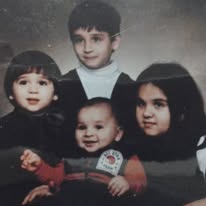
Left: Ashty Karim, Top: Shuan Karim, Right: Pari Karim, Bottom: Haval Karim
"Despite almost full integration into American Culture, I felt continually less at home. The rise of anti-Middle-East sentiment in the early 2000s began to permeate my daily interactions with my teachers and in public. This lack of belonging led me to explore my cultural roots in my early 20s."
In 2007, I bought a one-way ticket to Iraq, and I immediately went to work in the Language Center at Salahaddin University, teaching English. One night, while talking with my mother on Skype, she asked me a question. I meant to say that I forgot, but it came out as "It left my thoughts." This was a perfect literal translation of the Kurdish equivalent Le bîrim çû. I vividly remember the feeling that came over me; I was shocked and intrigued by my utterance. I credit this as the moment when I became a linguist, although I would not have that word in my vocabulary for five more years.
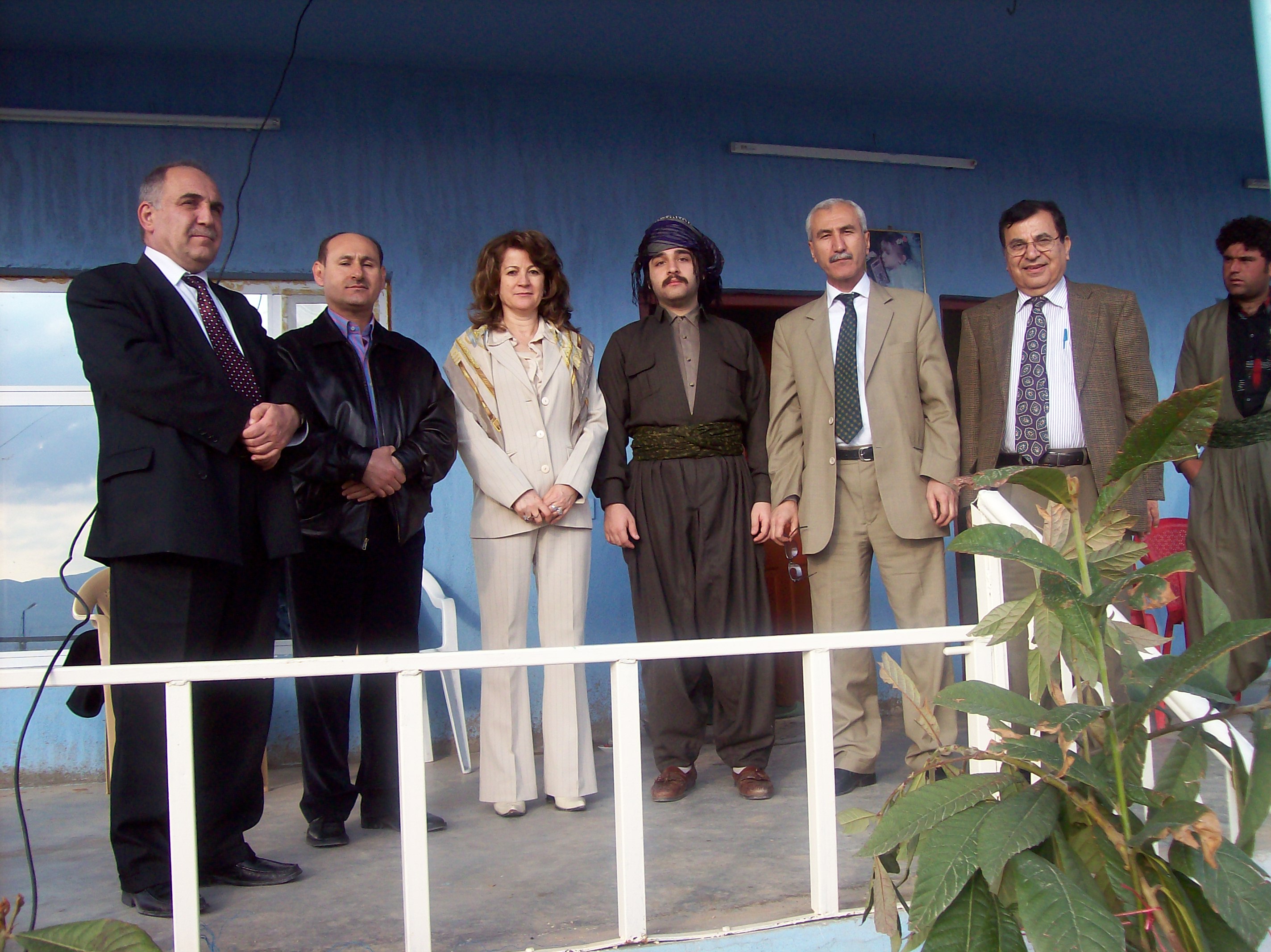
From left: Dr. Kamal Khoshnaw, unknown, unknown, Shuan Karim, Hakim Rizgar Mohammad Amin Faraydon Karim, unknown
I returned to the US shortly after that conversation, where I entertained various carreer options, including a career as a chef. This career path brought me to Chicago, where I worked catering for recording artists six days a week. On my day off, I would stage at Michelin-starred restaurants, honing my craft. Through all of that, I never stopped studying languages. After a long day in the kitchen, I studied Sanskrit, Japanese, Arabic, and whatever else I could get my hands on.
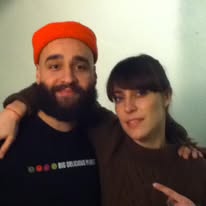
Shuan Karim and Leslie Feist
Academic Journey
From community college to postdoctoral research, each step deepened my understanding of language and its connection to human experience.
BA in Linguistics
University of Texas at Austin
After a year at Austin Community college, I was accepted into the linguistics program at the University of Texas at Austin. I was fortunate to receive the prestigeous Terry Foundation transfer scholarship.
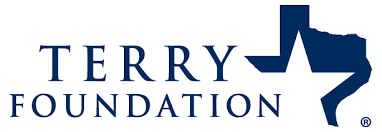
My undergraduate thesis, "Bilingual Personalities Phenomenon," represented my first and last attempt to systematically study the psycholinguistic questions that initially piqued my interest. My original interest in psycholinguistics changed when I took my first Historical Linguistics course with Patty Epps.
In Patty's class, I learned about the Comparative Method. I remember solving a homework problem set featuring Yiddish. When I was finished, the solution was so seemingly absurd that I second-guessed my work and changed my answer. I later learned that my original answer was correct. I was facinated in the idea that sound changed can be trusted.
Historical Linguistics appealed to me because it's a complex puzzle with countless data points, where each piece has the potential to preserve an integral part of the solution.
PhD in Linguistics
The Ohio State University
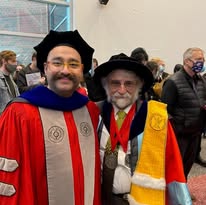
OSU December 2021 Graduation Brian Joseph and Shuan Karim
At Ohio State University, I conducted research under Brian Joseph, an expert in Indo-European, Balkan Languages, and Historical Linguistics. It was here that I began integrating the most up-to-date linguistic theory into historical reconstruction with the Comparative Method.
Under Brian Joseph's mentorship, I applied modern linguistic theory to historical reconstruction, publishing on phonology, morphology, Semitic Languages (Akkadian), Iranic Languages (Kurdish, Zazaki, Gorani), and Indo-European more generally.
My son Mithra was born in my second month of grad school. He has been my guiding light in this journey ever since—my reminder to put down the book, close the laptop, and live life. This has made me a more efficient researcher and a better person.
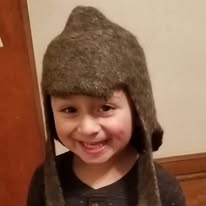
Mithra Karim wearing a Klête
As a graduate student, I began attending conferences and workshops where I began to meet some of my heroes and role models, to learn from them, to have meaningful conversations, and form lasting friendships.
Postdoctoral Researcher
University of Cambridge
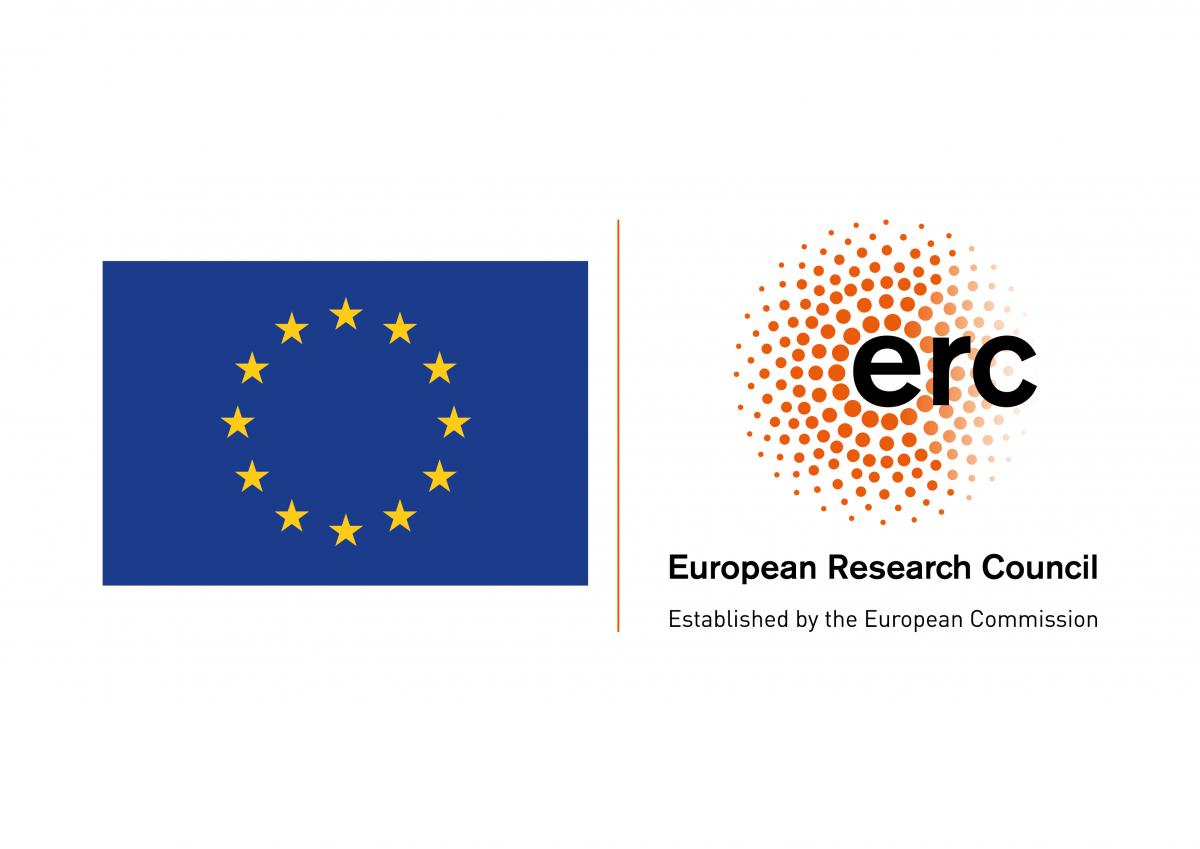
At the University of Cambridge, I had the pleasure of working on the ERC-funded "ALHOME: Echoes of Vanishing Voices in the Mountains" project with Geoffrey Khan, Masoud Mohammadirad, Ergin Öpengin, and Katherine Hodgson. This work will likely be the foundation for much of my future research.
The project reconstructed the complex socioreligious past of disappearing indigenous communities across West Asia, creating a linguistic atlas of modern Aramaic dialects and analyzing convergences with Kurdish and Gorani dialects.
In August 2024, I moved to Würzburg, Germany, where I began an Alexander von Humboldt Postdoctoral fellowship. The integration of Machine Learning and AI is an increasingly important part of my work, removing data-processing bottlenecks in language documentation.
My current research focuses on writing a historical grammar of Kurdish and Gorani while building international collaborations, including the GlossKit project that combines innovative recording methods with AI-powered data processing pipelines.
Humboldt Fellow
University of Würzburg
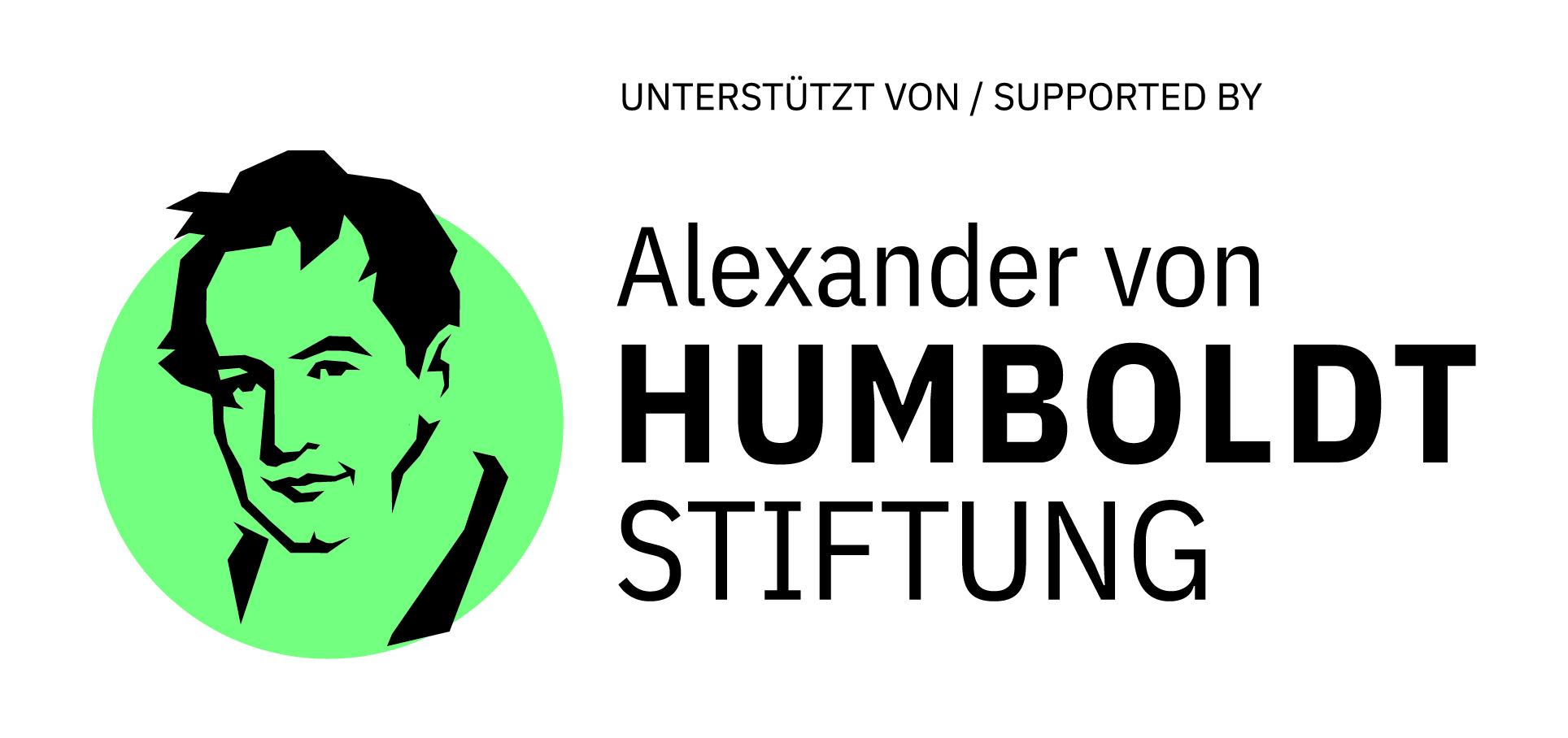
Conference Participation
Building connections and sharing research across the global linguistics community
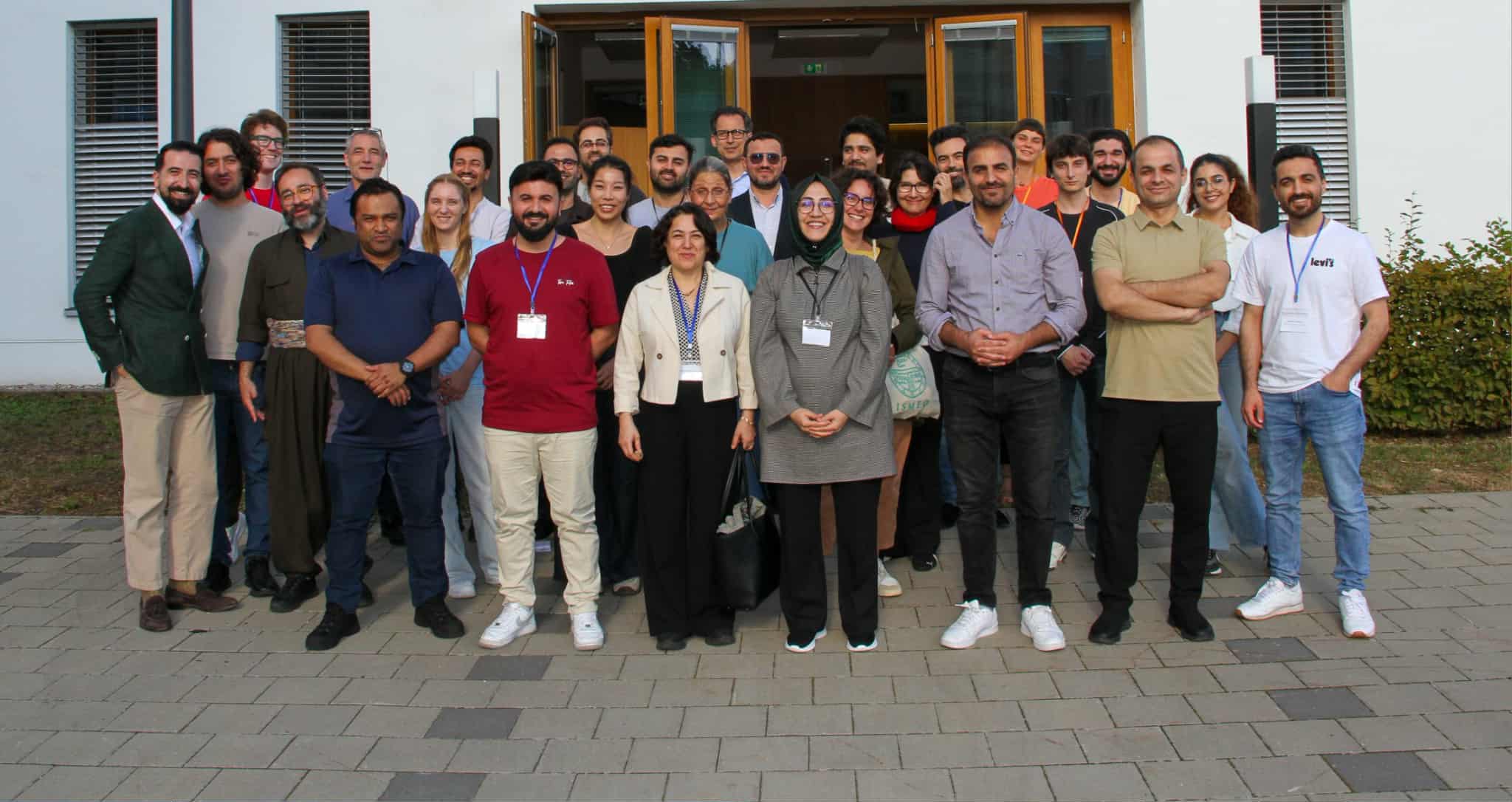
International Conference on Kurdish Linguistics 2025 Bamberg
Teaching & Mentorship
After graduating in December 2021, I spent a year helping build a pilot linguistics program at a local Columbus, Ohio, high school. The experience was transformative, as I saw students going through the same trials I faced growing up in Texas.
"One time, I met a Somali student who introduced himself as Ozzy. I said, 'Let me guess; your real name is Osman, and you tell people it's Ozzy because you're tired of people getting it wrong and just want to fit in.' Shocked, he asked how I could know that. I said, 'Because my middle name is Osman, and I tried it; it doesn't work.'"
My students helped me realize that I can leverage this career to achieve my research goals while also making a positive impact on the lives of my students.
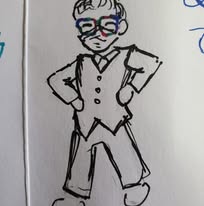
Hand-drawn image of Dr. Shuan wearing a three-piece suit, a Covid mask, and Rainbow Acrylic glasses given as a gift from a student
Current Research Focus
My work today combines traditional historical linguistics with innovative digital tools to preserve and understand endangered languages.
Historical Grammar of Kurdish & Gorani
Documenting the historical development and relationships between Kurdish dialects and Gorani, contributing to our understanding of Iranian language family evolution and contact phenomena.
GlossKit Project
Reimagining language documentation by combining recording, transcription, and analysis with cutting-edge AI and machine learning tools to make linguistic research more accessible and efficient.
Let's Explore Language Together
Whether you're interested in Kurdish linguistics, historical reconstruction, or innovative documentation methods, I'd love to connect and share ideas.